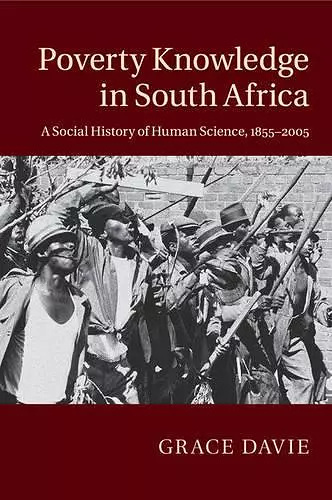Poverty Knowledge in South Africa
A Social History of Human Science, 1855–2005
Format:Paperback
Publisher:Cambridge University Press
Published:6th Aug '15
Currently unavailable, and unfortunately no date known when it will be back
This paperback is available in another edition too:
- Hardback£60.00(9780521198752)

This book discusses unconventional ways of measuring and addressing poverty in South Africa, which remains one of the country's biggest challenges.
Poverty is South Africa's greatest challenge. But what is 'poverty'? And how can it be measured and addressed? Davie argues that poverty knowledge teaches us about the dynamics of historical change, the power of racial thinking in white settler societies, and the role of ordinary people in shaping state policy.Poverty is South Africa's greatest challenge. But what is 'poverty'? How can it be measured? And how can it be reduced if not eliminated? In South Africa, human science knowledge about the cost of living grew out of colonialism, industrialization, apartheid and civil resistance campaigns, which makes this knowledge far from neutral or apolitical. South Africans have used the Poverty Datum Line (PDL), Gini coefficients and other poverty thresholds to petition the state, to chip away at the pillars of white supremacy, and, more recently, to criticize the postapartheid government's failures to deliver on some of its promises. Rather than promoting one particular policy solution, this book argues that poverty knowledge teaches us about the dynamics of historical change, the power of racism in white settler societies, and the role of grassroots protest movements in shaping state policies and scientific categories. Readers will gain new perspectives on today's debates about social welfare, redistribution and human rights, and will ultimately find reasons to rethink conventional approaches to advocacy.
ISBN: 9781107551732
Dimensions: 230mm x 153mm x 20mm
Weight: 520g
346 pages